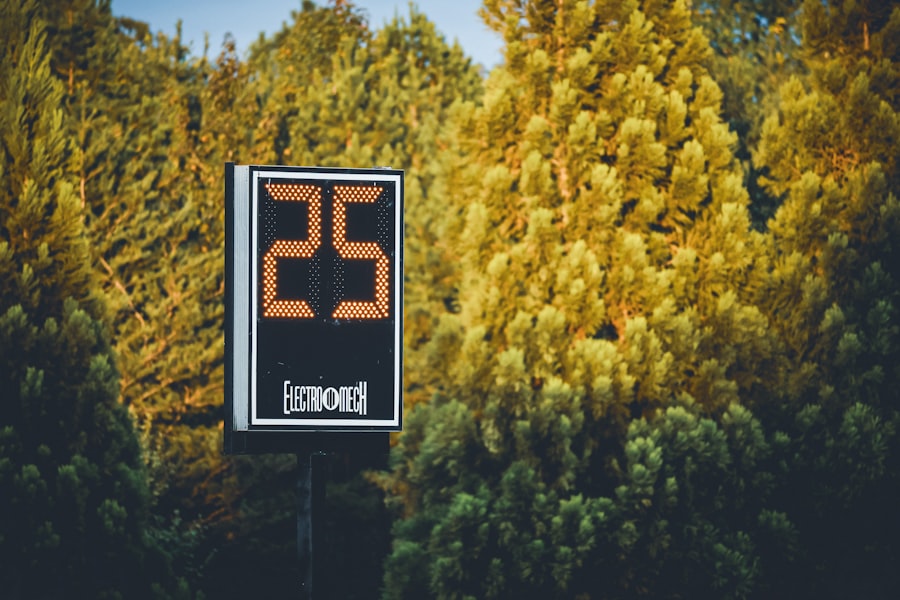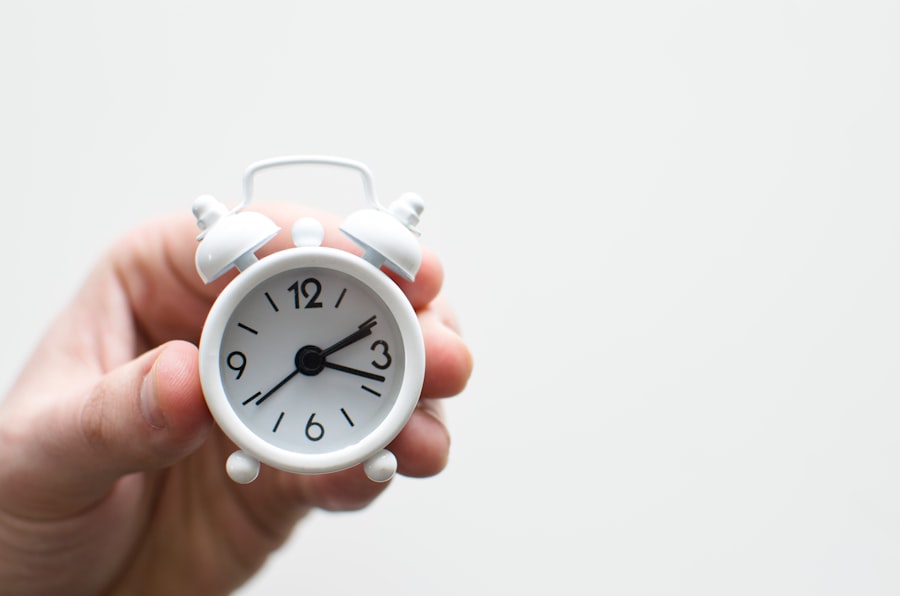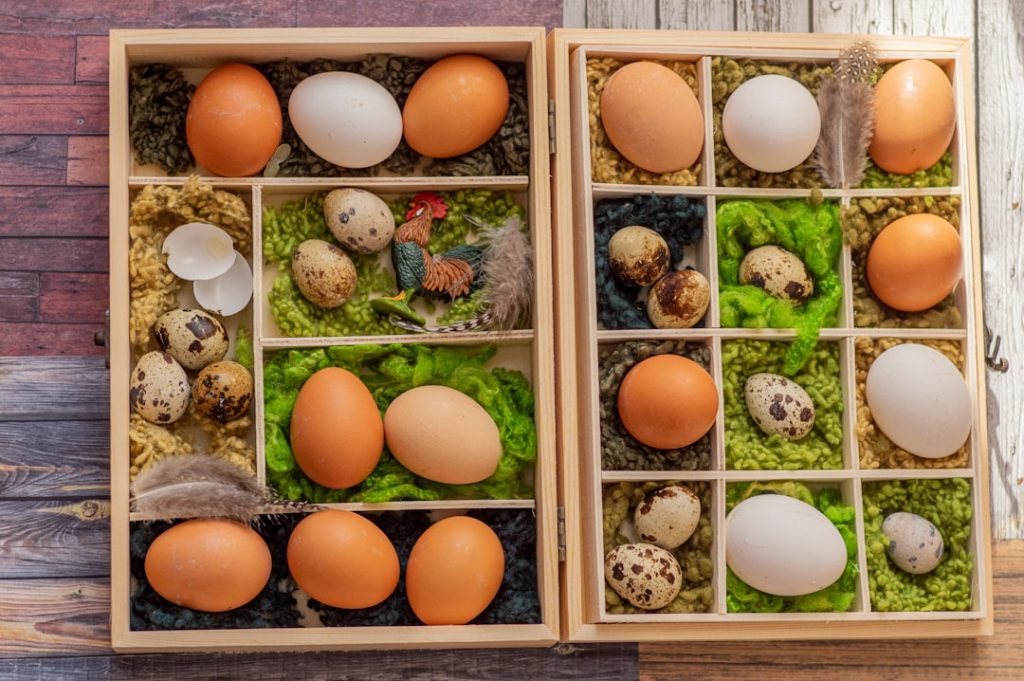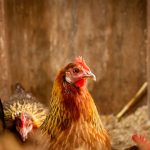The incubation period for chickens is the time required for a fertilized egg to develop and hatch into a chick. This process typically lasts 21 days but may vary slightly depending on the chicken breed and environmental conditions. Maintaining consistent temperature and humidity levels is crucial for proper embryo development during this period.
The incubation process is vital for chick survival, as it provides the necessary conditions for growth and development. Understanding the incubation period is essential for those who wish to hatch their own chicks, enabling proper monitoring and care of the eggs throughout the process. The incubation period commences when eggs are placed in the incubator and temperature and humidity levels are set.
Careful monitoring of these conditions is important throughout the entire period, as fluctuations can significantly impact embryo development. Incubation involves a delicate balance of temperature and humidity, as well as regular egg turning to ensure even embryo development. By understanding the specific requirements of the incubation period, individuals can take necessary steps to provide optimal conditions for successful egg hatching.
Table of Contents
- 1 Factors to Consider When Determining Incubation Length
- 2 Importance of Monitoring the Incubation Process
- 3 Signs That Chickens are Ready to Leave the Incubator
- 4 Risks of Keeping Chickens in the Incubator for Too Long
- 5 Tips for Successfully Transitioning Chickens out of the Incubator
- 6 Finding the Right Balance for Incubation Period
- 7 FAQs
Key Takeaways
- The incubation period for chickens is typically 21 days, but can vary based on factors such as temperature and humidity.
- Factors to consider when determining incubation length include the breed of the chicken, the age of the eggs, and the conditions of the incubator.
- Monitoring the incubation process is important to ensure that the eggs are developing properly and to make any necessary adjustments to the environment.
- Signs that chickens are ready to leave the incubator include pipping, chirping, and movement within the egg.
- Keeping chickens in the incubator for too long can lead to developmental issues and even death, so it’s important to transition them out at the right time.
- Tips for successfully transitioning chickens out of the incubator include providing a warm and safe brooding area and introducing them to food and water.
- Finding the right balance for the incubation period is crucial for the health and development of the chickens, and requires careful monitoring and attention to their needs.
Factors to Consider When Determining Incubation Length
Environmental Factors
Environmental factors such as temperature and humidity also play a significant role in the length of the incubation period. If the temperature is too high or too low, or if the humidity levels are not optimal, it can prolong or shorten the incubation period.
Egg Quality and External Factors
The age and quality of the eggs being incubated are also important considerations. Fresh, high-quality eggs are more likely to hatch successfully within the expected timeframe, while older or lower quality eggs may take longer to develop. Additionally, external factors such as exposure to toxins or physical damage to the eggs can impact the development of the embryos.
Optimizing the Incubation Period
By taking these factors into account, individuals can make informed decisions about how long to expect the incubation period to last and can take appropriate measures to ensure the best possible outcome for hatching their chicks.
Importance of Monitoring the Incubation Process

Monitoring the incubation process is crucial for ensuring the successful hatching of chicks. Throughout the entire incubation period, it is important to regularly check and adjust the temperature and humidity levels in the incubator to ensure that they remain within the optimal range. This can be done using a reliable thermometer and hygrometer, which will allow individuals to accurately monitor these conditions and make any necessary adjustments.
Additionally, it is important to regularly turn the eggs to prevent the embryos from sticking to the shell and ensure even development. Regular monitoring also allows individuals to identify any potential issues that may arise during the incubation process. For example, if an egg becomes damaged or contaminated, it can be removed from the incubator to prevent it from affecting the other eggs.
Monitoring also allows individuals to observe the development of the embryos and identify any signs of potential problems, such as abnormal growth or lack of movement. By closely monitoring the incubation process, individuals can take proactive measures to address any issues that may arise and increase the likelihood of a successful hatch.
Signs That Chickens are Ready to Leave the Incubator
As the end of the incubation period approaches, there are several signs that indicate that the chicks are ready to leave the incubator and hatch. One of the most obvious signs is when the eggs begin to pip, which refers to when the chicks start to break through the shell using their egg tooth. This can usually be observed by small cracks or holes in the eggshell, indicating that hatching is imminent.
Additionally, chicks that are ready to hatch will often start chirping or peeping from inside their eggs, signaling their readiness to emerge. Another sign that chicks are ready to leave the incubator is when they start to push against the eggshell from inside. This can cause the eggs to wobble or move slightly, indicating that hatching is underway.
As these signs become more apparent, it is important to resist the urge to assist the chicks in hatching, as this can do more harm than good. Instead, it is best to allow nature to take its course and allow the chicks to hatch on their own. By recognizing these signs and allowing the chicks to hatch naturally, individuals can ensure that they have a better chance of being healthy and strong once they emerge from their shells.
Risks of Keeping Chickens in the Incubator for Too Long
While it is important to allow chicks to hatch naturally, it is also crucial not to keep them in the incubator for too long once they are ready to leave their shells. Keeping chicks in the incubator for an extended period can lead to several potential risks and complications. One of the main risks is that if chicks are left in the incubator for too long, they may become weak or exhausted from trying to hatch.
This can lead to decreased vitality and overall health once they have hatched, making them more susceptible to illness or other issues. Another risk of keeping chicks in the incubator for too long is that they may become dehydrated or malnourished. Once chicks have hatched, they rely on absorbing nutrients from their yolk sac for up to 72 hours before they are able to eat and drink on their own.
If they remain in the incubator for an extended period, they may use up their yolk sac reserves and become weak or dehydrated before they have a chance to receive proper nourishment. Additionally, prolonged exposure to high humidity levels in the incubator can lead to health issues such as respiratory problems or fungal infections. By being aware of these risks and taking appropriate action once chicks are ready to leave the incubator, individuals can help ensure that they have a better chance of thriving once they have hatched.
Tips for Successfully Transitioning Chickens out of the Incubator

Providing a Warm and Comfortable Environment
Once chicks have hatched and are ready to leave the incubator, it’s essential to move them into a brooder box or area equipped with a heat source, such as a heat lamp or heating pad. This helps them stay warm and comfortable as they adjust to their new environment.
Monitoring Temperature and Providing Nourishment
Closely monitor the chicks’ behavior and adjust the temperature in the brooder as needed to ensure they remain at a comfortable temperature. It’s also crucial to provide newly hatched chicks with access to food and water as soon as possible. Offer them high-quality chick starter feed and clean water in shallow dishes that are easy for them to access.
Ensuring a Safe and Healthy Environment
Make sure the chicks can easily find and consume food and water to support their growth and development. Additionally, provide a clean and safe environment, free from drafts, predators, or other potential hazards. By taking these steps, you can help ensure that newly hatched chicks have a smooth transition out of the incubator and into their new living space.
Finding the Right Balance for Incubation Period
In conclusion, understanding and monitoring the incubation period for chickens is essential for successfully hatching healthy chicks. By considering factors such as breed, egg quality, and environmental conditions, individuals can make informed decisions about how long to expect the incubation period to last and take appropriate measures to ensure a successful hatch. It is important to closely monitor the incubation process and be aware of signs that indicate when chicks are ready to leave the incubator in order to prevent potential risks associated with keeping them in for too long.
By following these tips and taking proactive measures during the incubation process, individuals can help ensure that newly hatched chicks have a smooth transition into their new environment and have a better chance of thriving once they have hatched.
If you’re wondering how long you should keep chickens in an incubator, you may also be interested in learning about the size of a coop needed for chickens. This article provides valuable information on the space requirements for keeping chickens in a coop. Understanding the space needed for chickens can help ensure their health and well-being once they are ready to leave the incubator.
FAQs
What is an incubator?
An incubator is a device used to simulate the conditions necessary for the hatching of eggs, such as temperature, humidity, and ventilation.
How long should I keep chickens in an incubator?
Chickens should be kept in an incubator for approximately 21 days before they hatch. It is important to maintain the proper temperature and humidity levels during this time for successful hatching.
What are the ideal conditions for hatching chicken eggs in an incubator?
The ideal temperature for hatching chicken eggs in an incubator is around 99.5 degrees Fahrenheit, with a relative humidity of 40-50% for the first 18 days, and then increased to 65-75% for the final 3 days before hatching.
What should I do once the eggs start hatching?
Once the eggs start hatching, it is important to leave the chicks in the incubator until they are fully dry and fluffed up. This usually takes around 24 hours. After that, they can be moved to a brooder for further care and development.
Meet Walter, the feathered-friend fanatic of Florida! Nestled in the sunshine state, Walter struts through life with his feathered companions, clucking his way to happiness. With a coop that’s fancier than a five-star hotel, he’s the Don Juan of the chicken world. When he’s not teaching his hens to do the cha-cha, you’ll find him in a heated debate with his prized rooster, Sir Clucks-a-Lot. Walter’s poultry passion is no yolk; he’s the sunny-side-up guy you never knew you needed in your flock of friends!







